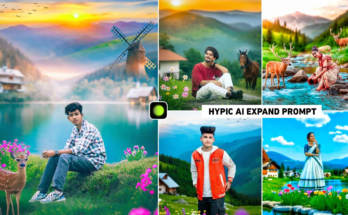The Rise of AI Filters: How Ton and Other Apps Are Transforming Photos and Images
In recent years, artificial intelligence (AI) has revolutionized the way we edit and enhance photos. Among the many AI-powered tools available, Ton has emerged as a popular choice for applying stunning filters to images. These AI-driven enhancements go beyond traditional photo editing, offering automatic adjustments that improve colors, lighting, and even facial features with minimal effort.
This article explores how Ton and other AI photo filters work, their benefits, potential drawbacks, and their impact on digital photography and social media.
What Are AI Photo Filters?
AI photo filters use machine learning algorithms to analyze and modify images in ways that mimic professional editing. Unlike traditional filters that apply uniform changes (such as Instagram’s preset filters), AI-powered tools like Ton intelligently adjust different parts of an image separately.
How Do AI Filters Work?
- Image Analysis – The AI scans the photo to identify elements like faces, backgrounds, and objects.
- Feature Enhancement – It adjusts brightness, contrast, saturation, and sharpness based on learned patterns from millions of images.
- Style Transfer – Some AI filters apply artistic styles, mimicking famous paintings or aesthetic trends.
- Automatic Corrections – Red-eye reduction, skin smoothing, and background blurring are applied seamlessly.
Apps like Ton, Lensa, FaceApp, and Remini use deep learning to make these enhancements look natural and high-quality.

Why Are AI Filters Like Ton So Popular?
1. Professional-Quality Edits in Seconds
AI filters eliminate the need for manual editing in software like Photoshop. With a single tap, users can achieve polished, magazine-worthy results.
2. Social Media Appeal
Platforms like Instagram and TikTok thrive on visually appealing content. AI filters help users stand out with vibrant, eye-catching images.
3. Accessibility
Not everyone has photo editing skills, but AI tools make advanced enhancements available to everyone.
4. Creative Exploration
AI filters allow users to experiment with different styles—vintage, cinematic, fantasy, or futuristic—without needing design expertise.
Top AI Photo Filter Apps in 2024
| App | Key Features | Best For |
|---|---|---|
| Ton | AI-powered color grading, skin retouching, background enhancement | Social media influencers, casual users |
| Lensa | Magic Avatars, portrait enhancements, artistic filters | Selfies, profile pictures |
| FaceApp | Age transformation, smile adjustment, hairstyle changes | Fun edits, realistic face modifications |
| Remini | Photo restoration, HD enhancement, AI-generated details | Old photo repair, high-resolution upgrades |
| Prisma | Artistic style transfer, painting-like effects | Creative photography |
The Ethical and Privacy Concerns of AI Filters
While AI filters offer incredible convenience, they also raise important concerns:
1. Unrealistic Beauty Standards
Apps like Ton and FaceApp often promote flawless skin, enlarged eyes, and slimmer faces, contributing to unrealistic beauty expectations.
2. Deepfakes and Misinformation
Advanced AI can manipulate images to create convincing deepfakes, raising concerns about fake profiles and misinformation.
3. Data Privacy Risks
Many AI photo apps collect and store user data, sometimes without clear consent. Users should check privacy policies before uploading personal photos.
4. Loss of Authenticity
Overuse of AI filters can make photos look artificial, reducing the authenticity of digital memories.
The Future of AI in Photo Editing
AI-powered photo enhancements are evolving rapidly. Future developments may include:
- Real-time AI filters in smartphone cameras
- 3D photo manipulation for virtual and augmented reality
- Personalized AI editors that learn individual editing preferences
- Ethical AI guidelines to prevent misuse in media and advertising
Conclusion
AI photo filters like Ton have transformed digital photography, making professional-grade editing accessible to everyone. While they offer incredible creative possibilities, users should be mindful of their ethical implications and privacy risks.



